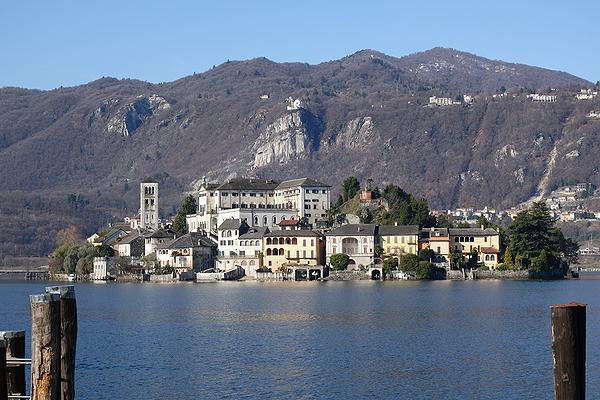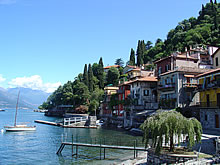ITALY CHRONICLES
Latest Posts

New! Italy Photo Contests – Show Off Your Photos of Italy
If you, like me, you think Italy is extremely photogenic, you might be interested to hear that Italy Chronicles is to run photo contests. The
Italian Politics – Still a Mess
Here’s a roundup stroke overview of what’s going on in the decidedly odd world of Italian politics. Broadly, there are three political factions in Italy,
Wild Boar Hunting in Italy
Ever thought about wild boar hunting in Italy? Maybe not but perhaps you might like to. Italy has a bit of a problem with wild
Berlusconi Heart
On Thursday in Italy headlines were dominated by the news that Silvio Berlusconi, a former and controversial prime minister, required an urgent heart operation and had
Money People – The World’s Biggest Problem
What’s that old saying? Ah yes, “money is the root of all evil”. From what is happening in Italy and elsewhere around the world, there
Italian Politics – Still a Mess
Here’s a roundup stroke overview of what’s going on in
Wild Boar Hunting in Italy
Ever thought about wild boar hunting in Italy? Maybe not
Berlusconi Heart
On Thursday in Italy headlines were dominated by the news
Money People – The World’s Biggest Problem
What’s that old saying? Ah yes, “money is the root
Italy
Exploring the Allure of the Iconic Italian Lifestyle
Italian lifestyle is renowned for its rich traditions, diverse cuisine, appreciation of art and culture, and strong family bonds. From the importance of food and
Italian Rogue of the Week – Franco Fiorito
Commonly referred to as Batman, Franco Fiorito is an Italian regional politician who used party funds to live it up. Italy’s political parties are financed

Tender Italy
This post is not going to a declaration of my undying love for Italy. No, instead it’s going to be about a problem situation which crops up all too regularly in the news here – that of public tender related corruption and fraud.

Results: Italy Elections 2013
Well, the result is, er, no conclusive result. No single political party or coalition earned enough votes to form a working majority and it’s not
Cleanliness and gold medal untidiness
Italians have clean homes, very clean homes. Italian wives and cleaning ladies spend hours ensuring that the home environment is spotless, and hygienic too. You
Exploring the Naples National Archaeological Museum
The Naples National Archaeological Museum is a cultural gem that showcases the rich history and artifacts of ancient civilizations. With its origins dating back to

Italian Wine – Best Selling Wine Books
Here’s a list of best selling wine books to help

Italy’s Judges are Communists
That Italy’s judiciary is a communist coven is a claim Italy’s prime minister Silvio Berlusconi makes virtually daily.
Recently, in the face of Rubygate these claims have reached a new crescendo.
But is it true? Has Italy’s judiciary been penetrated by communist infiltrators? In other words, is there any evidence that Berlusconi’s mantra that judges in Italy are communists is true?
Properties

The Admirable Admiral’s Villa in Taormina
If you know your history pretty well, you may be aware that one of England’s most celebrated Admirals possessed a rather charming villa in the scenic Sicilian town of Taormina.
House For Sale near Milan
Gaetano Salvo, friend and Blog from Italy researcher wants to sell his house. For those who might be interested, or may know of someone or

How to Find Property for Rent in Italy
Maybe you are coming to Italy to work or study here for a while, in which case, you’ll need somewhere to live. If that’s the
House For Sale near Milan
Gaetano Salvo, friend and Blog from Italy researcher wants to sell his house. For those who might be interested, or may know of someone or

The Admirable Admiral’s Villa in Taormina
If you know your history pretty well, you may be aware that one of England’s most celebrated Admirals possessed a rather charming villa in the scenic Sicilian town of Taormina.
Places to stay in Italy
Villa Miller Bed and Breakfast, Puglia, Italy
Located well off the main road in the depths of the Puglia countryside, Villa Miller the only sounds which disturb guests are those of the crickets and the ringing of the bells worn by the areas cow and sheep population.
Chaplin Bed and Breakfast Rome
Perfectly located in a safe and quiet but extremely central Rome neighborhood, the Chaplin Bed and Breakfast Rome is the ideal base for your Roman holiday.
Casa Villatalla B&B, Liguria
By far the most important members of the Casa Villatalla household are Nellie (an elderly but loveable chocolate Labrador), Bonnie, a fluffy and rather scatty American Spaniel, and Pickle, aneccentric cat who walks like John Wayne.
Chaplin Bed and Breakfast Rome
Perfectly located in a safe and quiet but extremely central Rome neighborhood, the Chaplin Bed and Breakfast Rome is the ideal base for your Roman holiday.
Villa Miller Bed and Breakfast, Puglia, Italy
Located well off the main road in the depths of the Puglia countryside, Villa Miller the only sounds which disturb guests are those of the crickets and the ringing of the bells worn by the areas cow and sheep population.

